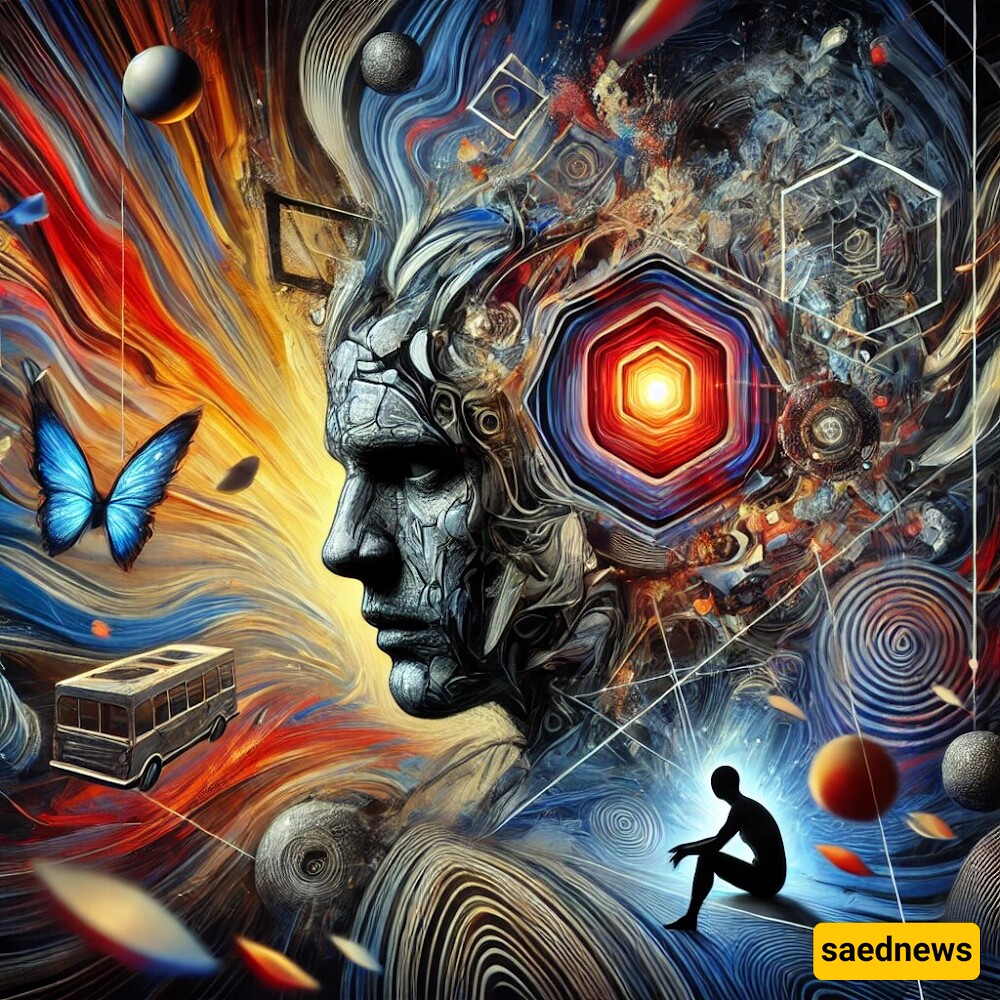Saed News: Psychotic disorders are a group of serious mental health conditions characterized by abnormal thoughts and perceptions that do not align with reality. Delusions (false beliefs) and hallucinations (false perceptions) are also key features of these disorders.

Types of Psychotic Disorders
Brief Psychotic Disorder
Substance-Induced Psychosis (Drugs or Alcohol)
Organic Psychosis
Postpartum Psychosis
Severe Depression
Psychosis in Bipolar Disorder
Delusional Disorder
Schizoaffective Disorder
Psychotic Disorders in DSM-5
Symptoms of Psychotic Disorders
Causes of Psychotic Disorders
Who is More at Risk for Psychosis?
Diagnosis of Psychotic Disorders
Treatment of Psychotic Disorders
Antipsychotic Medications
Complications of Psychotic Disorders
According to Saed News' Family Health Service, psychotic disorders (psychosis) affect brain function by altering thoughts, beliefs, or perceptions. People with psychotic disorders may believe they are being spied on or followed, hear voices, or feel that others are manipulating their thoughts. They struggle to differentiate between their perceptions and reality.
Symptoms of psychotic disorders may appear gradually or suddenly. The period during which a person experiences these symptoms is called a "psychotic episode," during which they lose contact with reality. Psychosis affects thoughts, emotions, feelings, and behavior.
This article provides a detailed introduction to psychotic disorders and their symptoms. However, distressing feelings can disrupt life, so it is advisable to consult a psychologist or psychiatrist.
Psychotic disorders vary in severity and symptoms. The main types include:
Brief Psychotic Disorder
Substance-Induced Psychosis (Drugs or Alcohol)
Schizophrenia
Delusional Disorder
Schizoaffective Disorder
Schizophreniform Disorder
Shared Psychotic Disorder
Psychotic Disorder Due to a Medical Condition
Paraphrenia
Each of these disorders has distinct symptoms. Paraphrenia, for example, has similarities to schizophrenia or delusional disorder but is not yet officially classified as a psychotic disorder in DSM-5. It is more common in older adults and usually occurs when neurological issues arise.
A chronic brain disorder that affects thinking, emotions, and behavior. People with schizophrenia may experience:
Hallucinations
Delusions
Disorganized speech
Uncoordinated behavior
Lack of motivation or interest
Memory and concentration issues
A mood disorder characterized by extreme mood swings. Symptoms include:
Manic episodes: Elevated mood, racing thoughts, insomnia, increased activity
Depressive episodes: Low mood, fatigue, negative thoughts, difficulty sleeping
A psychotic disorder similar to schizophrenia but with less severe and shorter-lasting symptoms. Symptoms include:
Hallucinations
Delusions
Disorganized speech
Unusual beliefs
A psychotic disorder marked by persecutory delusions. Affected individuals may believe they are being harassed, followed, or conspired against. Symptoms include:
Strong delusions
Jealousy
Suspicion
Anger
A psychotic disorder characterized by unstable identity and memory loss. Individuals may:
Have multiple identities
Experience memory loss of past events
A short-term psychotic episode triggered by a highly stressful event (e.g., the death of a loved one). Recovery is usually quick—often within a month, with symptoms gradually fading.
Caused by drug or alcohol use or withdrawal, including hallucinogens and crack cocaine. Alcohol can also trigger psychotic symptoms.
A type of psychosis caused by physical health conditions, such as:
Stroke
Infections
Brain injuries
Some individuals experience psychotic symptoms after childbirth, including:
Depression
Mania
Rapid mood swings
Restlessness
Sleep disturbances
Lack of concentration
Some people with severe depression may also experience psychotic symptoms, such as hallucinations and delusions.
Bipolar disorder with psychotic features includes both depressive and manic episodes, often accompanied by hallucinations and delusions.
Characterized by false but persistent beliefs about real-life situations (e.g., thinking one is being followed or suffering from an incurable disease). Delusions last at least one month.
A combination of schizophrenia and mood disorder symptoms (such as bipolar disorder or depression). It may involve:
Hallucinations
Paranoia
Delusions
Mood instability
The Diagnostic and Statistical Manual of Mental Disorders (DSM-5) classifies psychotic disorders into:
Schizophrenia
Brief Psychotic Disorder
Delusional Disorder
Schizoaffective Disorder
Schizophreniform Disorder
Schizotypal Personality Disorder
Substance/Medication-Induced Psychotic Disorder
Psychotic Disorder Due to Another Medical Condition
Symptoms vary by disorder but often include:
Difficulty concentrating
Brain fog
Increased anxiety or restlessness
Loss of interest in normal activities
Appetite changes
Hallucinations (seeing or hearing things that aren't there)
Social withdrawal
Poor personal hygiene
Strong but false beliefs
Paranoia
Changes in sleep patterns
Emotional detachment
Strange or inappropriate clothing choices
Suspicion or hostility
Unusual speech patterns
Disorganized thoughts
Unusual movements
No single cause exists, but contributing factors include:
Genetics
Chemical imbalances in the brain (dopamine, serotonin, glutamate)
Trauma or stress
Substance abuse
Neurological conditions
People more prone to psychotic disorders include those with:
Alzheimer’s or dementia
Hormonal disorders (e.g., Addison’s disease, Cushing’s syndrome)
Thyroid disorders
Brain/spinal infections (e.g., meningitis, encephalitis)
Lupus
Lyme disease
Multiple sclerosis
Postpartum complications
Stroke or other neurological conditions
Vitamin B1 or B12 deficiency
Alcohol/substance abuse
Head trauma (e.g., concussion)
High levels of stress or anxiety
Doctors diagnose psychotic disorders using:
Medical and psychiatric history
Physical examination
Blood tests
MRI scans (to rule out other conditions)
Treatment depends on the cause, type, and severity of the disorder. It often includes:
Medication (antipsychotics)
Psychotherapy (e.g., Cognitive Behavioral Therapy, CBT)
Hospitalization (for severe cases)
If symptoms are severe and the person is at risk of harming themselves or others, hospitalization may be necessary.
This is a comprehensive translation of the original Persian text into English. Let me know if you need any adjustments!



